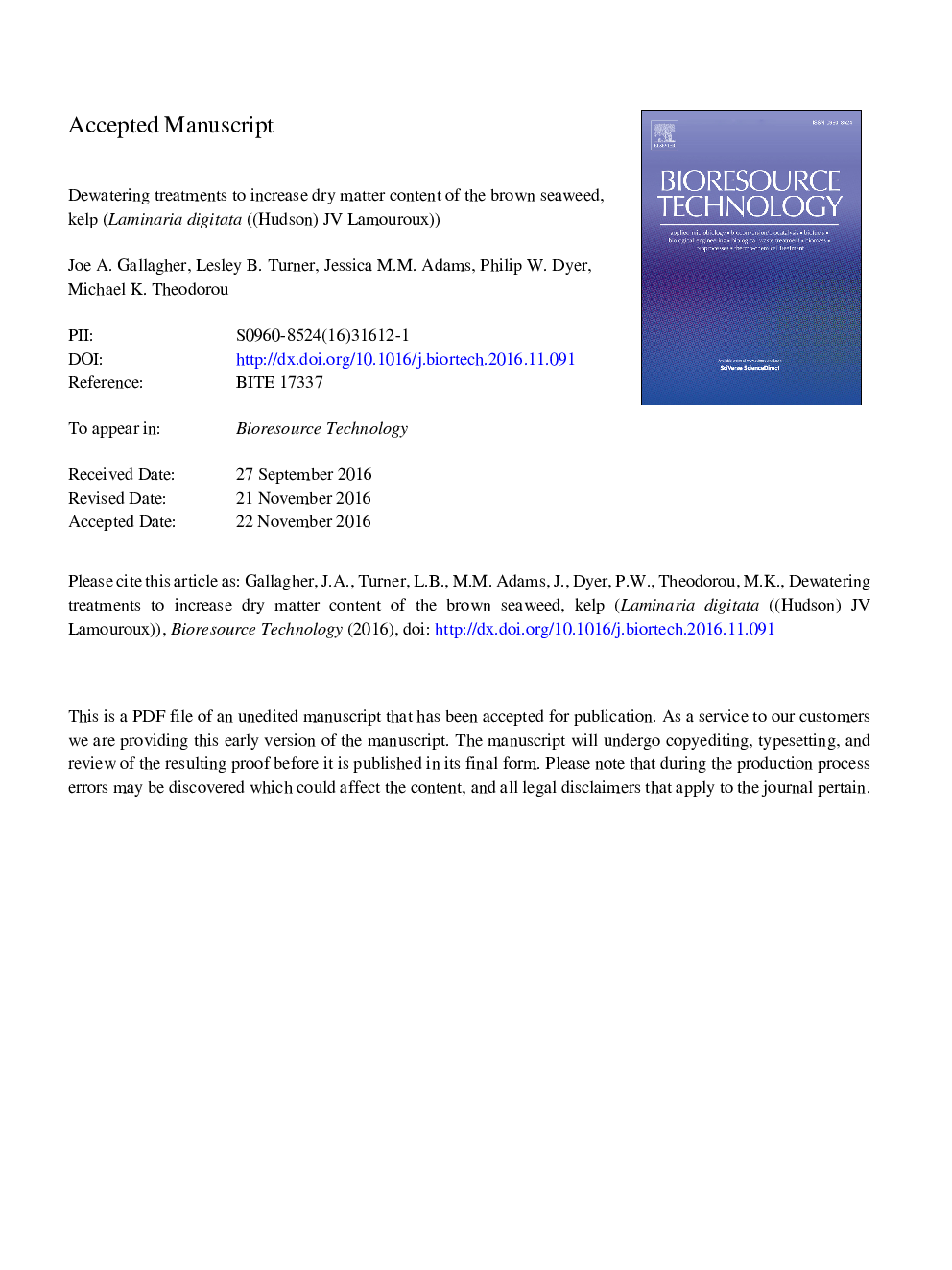| Article ID | Journal | Published Year | Pages | File Type |
|---|---|---|---|---|
| 4997889 | Bioresource Technology | 2017 | 30 Pages |
Abstract
Macroalgal water content is an on-going problem for the use of readily accessible seaweeds in sustainable biorefining, including fuel production. Silage is a reduced-water, compactable, easily stored, transportable material. Ensiling could establish a non-seasonal supply of preserved algal biomass, but requires high initial dry matter content to mitigate environmental pollution risks from effluent. This study investigated potential dewatering methods for kelp harvested throughout the year. Treatments included air-drying, osmotic media and acids. Significant interactions between treatment and harvest-time were observed for traits of interest. Fresh weight loss during treatment was composed of changes in water and dry matter content. Air-drying gave reliable increase in final dry matter content; in summer and autumn 30% dry matter content was reached after 24Â h. Dilute hydrochloric acid reduced stickiness and rendered material suitable for dewatering by screw-pressing; it may be possible to use the consequent pH reduction to promote efficient preservation.
Related Topics
Physical Sciences and Engineering
Chemical Engineering
Process Chemistry and Technology
Authors
Joe A. Gallagher, Lesley B. Turner, Jessica M.M. Adams, Philip W. Dyer, Michael K. Theodorou,
